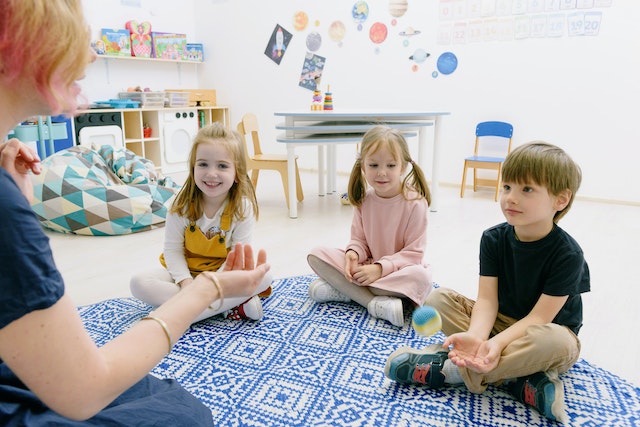Childcare experts are critical to the development of young children, as they provide a supportive and safe environment for children to learn and grow. That being said, working with children needs more than simply a love for children; it necessitates particular skills and expertise.
Certifications are a wonderful method to demonstrate that you have the knowledge and skills to offer children quality care.
Certifications You Need As A Childcare Professional
1. Certified as a Child Development Associate (CDA)
The Child Development Associate (CDA) certificate is a nationally recognized early childhood education credential. It is intended for people who work with children from newborn to five. Child development, nutrition, and classroom management are among the subjects covered by the CDA certification. It enables you with the knowledge and abilities to adequately care for young children.
2. Early Childhood Education Certification
Another necessary accreditation for childcare practitioners is a degree in early childhood education. It teaches you all you need to know about child development, teaching methodologies, and classroom management approaches. It also indicates a dedication to the field and a willingness to serve children with high-quality care.
3. Licensing of Child Care Facilities
Childcare licensing is a certification that shows that a childcare facility complies with state standards. All childcare providers are required by law to obtain this license to operate. The licensing process assures that the facility satisfies health and safety requirements, has proper staff-to-child ratios, and adheres to state childcare norms to name a few.
4. Certification in Special Education
Special education certification is required for childcare providers who work with disabled children. It teaches specific information and skills for working with children that have disabilities, from cognitive to physical to emotional. This qualification validates your ability to offer inclusive care to all children, regardless of their abilities.
5. Certification for Infants and Toddlers
Those who work with children under three are eligible for infant/toddler certification. It discusses newborn and toddler growth, health and safety, and caring approaches, among other things. This qualification validates your particular knowledge and abilities for working with children that fall into this age group.
6. Certified for Safe Sleeping
Childcare practitioners who work with newborns must be certified in safe sleep practices, and it teaches healthy sleeping techniques to reduce SIDS and other sleep-related fatalities. This accreditation reflects a dedication to providing newborns with a safe and healthy environment.
7. Certification in Nutrition
Nutrition certification is essential for childcare personnel who prepare and serve children’s meals, and it discusses things like pediatric nutrition, meal planning, and food safety. This qualification confirms that you have the knowledge and abilities to give children nutritious and balanced meals.
Benefits Of Certifications For Childcare
Professional Development
Childcare certificates equip workers with the information and abilities to offer effective child care. Child development, health and safety, behavior management, and other issues are covered through certifications. Childcare workers may improve their professional skills and give the best possible care to children by getting certificates.
Improved Employment Opportunities
Stacking childcare qualifications might lead to more work prospects in the sector. When recruiting new staff, many businesses need or prefer that applicants hold particular credentials. Moreover, certificates reflect a dedication to professional growth and might increase an individual’s job market competitiveness.
Children’s Safety And Well-being
Health and safety, emergency readiness, and behavior management certifications can help enhance children’s safety and well-being in childcare environments. Childcare providers can establish a safe and supportive environment for children by having the information and abilities to respond to unexpected emergencies, avoid accidents, and handle problematic behaviors effectively.
FAQs Related To Certifications Needed For Childcare
Do All Childcare Professionals Have To Be Certified?
While not all certificates are legally necessary, they are highly encouraged and can increase your chances of being recruited and providing great treatment.
Is It Possible To Earn Certificates Online?
Many certificates, such as a CPR certification earned online, are now being accepted by employers. Be sure that you are obtaining certificates through approved organizations.
Do Certificates Have An Expiration Date?
To preserve their validity, many credentials need periodic renewal or ongoing education.
What Is The Cost Of Certification?
The cost of certification varies based on the institution that provides it. Some firms may pay for their workers’ certificates.
Is It Possible For You To Earn Multiple Certifications?
Absolutely! Getting multiple certifications is encouraged to improve your abilities and make you more marketable.
Conclusion
It is important that all childcare practitioners have certain certifications, in addition to being competent and dedicated to delivering exceptional care to children. The certificates described in this article span many topics, although the list of options out there is much longer. By acquiring these qualifications, childcare providers can improve their skills, stand out in the job market, and provide children with the care they deserve.

